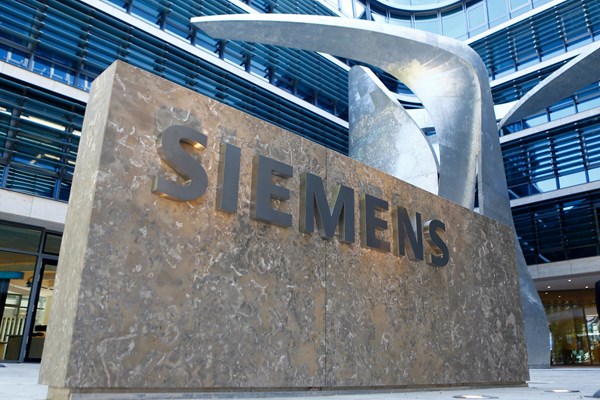Media: Siemens turbines for Crimea were resold in order to prevent court appeal
The Russian news outlet Kommersant reported that its journalists have uncovered the scheme according to which Siemens gas turbines were transferred from Russia to annexed Crimea, in circumvention of EU sanctions. As the media claims, this took place by means of resale.
According to the publication, it follows from the arbitration court documents that the scheme involved two Russian companies with the same name: JSC Foreign Economic Association Technopromexport, which is a subsidiary of the state corporation Rostec and is involved in the construction of energy facilities (currently it has already gone bankrupt), and LLC Technopromexport, which is the official power station builder in the annexed Crimea and also belongs to Rostec.
The former company officially bought four turbines produced in Russia under license from Siemens at a factory belonging to the Russian company LLC Siemens Gas Turbines Technologies, a joint enterprise between Siemens and the Russian firm Power Machines, of which Siemens has a 65% share. The turbines were officially to be used to the future power station on the Taman peninsula. As early as autumn 2015, instead of sending them to Taman, JSC Technopromexport resold these turbines to LLC Technopromexport, and then the new turbine owners were no longer affected by the original restriction regarding the Crimea from the contract with Siemens.
According to the newspaper, the lawyers it has consulted believe that according to this scheme, the Russian court will most likely not recognize the validity of this restriction from the original contract.
Siemens has filed a lawsuit with the Moscow Court of Arbitration disputing the transportation of the turbines from Russia to the Crimea, in violation of sanctions and the original contract. Siemens is asking for the turbines agreement to be declared void, and is requesting appropriate measures in light of the invalidity of the deal, namely the return of the turbines from Crimea to Russia. The court accepted the case for consideration, but refused to seize the turbines as a restrictive measure. Since the turbines have not been seized, the Russians are able to begin assembling them in the Crimea, without waiting for the court ruling.
In addition, the German concern has taken a number of other restrictive steps with respect to Russia: it has stopped shipping equipment to Russian state-controlled companies, even according to active contracts. It has also introduced a new export control regime with Russia which is stricter than EU sanctions require, and announced its withdrawal from one of the joint enterprises in Russia in which it did not have a controlling vote. Siemens has begun the process of revoking its license agreements with Russian companies regarding power station equipment. The German concern has also announced that it will not be involved in the assembly, adjustment or maintenance of the turbines in the Crimea.
It is obvious that Russia intends to use the turbines in question for new power stations in Crimea, which is suffering from insufficient electrical power following its annexation and disconnection from the Ukrainian power grid. Russia does not have its own technology or the ability to produce such turbines. The Russian press also reported that the necessary turbines could not be bought on foreign markets.
Siemens says that its Russian counterparts gave repeated written confirmation and commitment that these turbines, which were officially intended for the planned power station on the Taman peninsula, would not be transferred from Russia to the Crimea. However, Moscow claims that the contract was not violated, because the turbines were bought “on the secondary market” and not from the German concern, which is formally correct due to the resale scheme which was implemented.
Once it came out that the four turbines had still been transferred from Russia to Crimea, Moscow said that now, no matter what, two Crimean power stations will be launched next year according to plan. In the meanwhile, the EU has added several physical and legal entities involved in the deal to the sanction list, causing outrage in Moscow.
